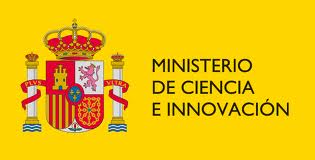Research project:
Methodologies based on Data Mining for the design of Intelligent Hybrid Systems (M2D2-SHI)
REF: TIN2008-06872-C04-03


Ministerio de Ciencia e Innovación Fondo Europeo de Desarrollo Regional
Presentation
This project was conceived to delve deeper into the integrated use of various intelligent components in a useful and effective aid system in decision-making. Intelligent systems for aided decision-making need to take advantage of Soft Computing methodologies to integrate knowledge extraction techniques with intelligent optimization strategies in the assessment and management of alternatives using information which is characterized by some degree of uncertainty. Methods for assessing and managing solutions, guidelines for the design of intelligent optimization strategies, models for managing information with uncertainty and data mining techniques to extract relevant information from each process are all important in this context. Thus, the project aims at deepening knowledge in four clearly defined research areas (corresponding to teams of the universities of Granada (UGR), La Laguna (ULL), Murcia (UMU) and Valencia (UV)) and the integration of the products from each one of them.- 1) Interactive methods for the assessment and ranking of alternatives with linguistic valuations (UGR)
- 2) Integration of data mining methodologies in hybrid optimization systems (UMU)
- 3) Cooperative hyper-heuristics based on heterogeneous search agents (ULL)
- 4) Integration of information with uncertainty in the optimization and assessment of alternatives (UV)
- 5) Integration of Intelligent Systems (Coordinated Project)
The performance of the designed tools and effectiveness of the respective advances will be studied and applied in important fields related to the efficient use of resources. These fields of activity include: financial investment, personnel management, evaluation of university quality and logistic planning. Portfolio selection and similar economical and financial problems are treated in the area of investment. We will also tackle the management of human resources by competencies, such as templates and optimal staff selection. Studies in logistic planning will take into account transport problems and the design of distribution networks by solving location, routing and load problems.